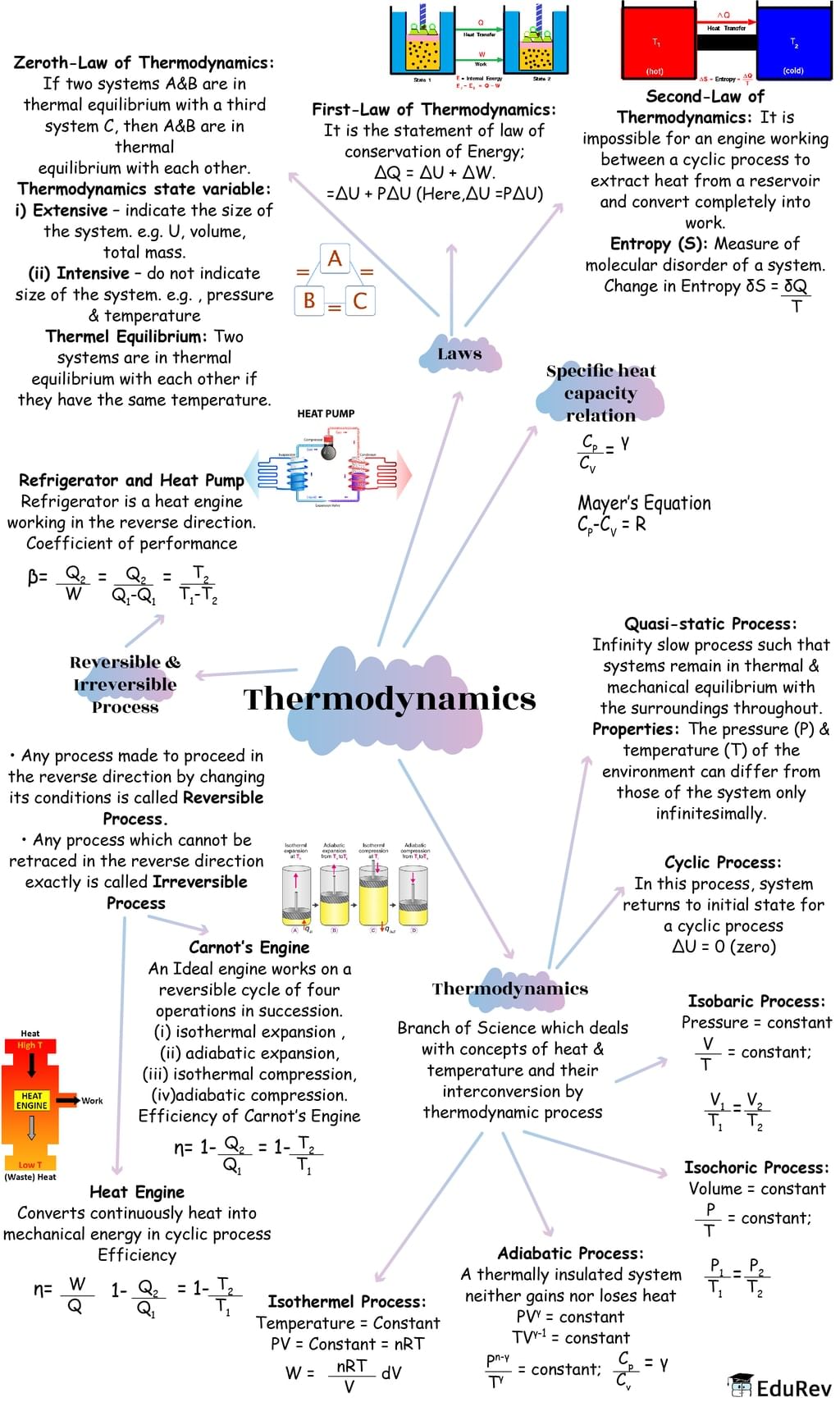NEET Exam > NEET Notes > Physics Class 11 > Mind Map: Thermodynamics
Mind Map: Thermodynamics | Physics Class 11 - NEET PDF Download

The document Mind Map: Thermodynamics | Physics Class 11 - NEET is a part of the NEET Course Physics Class 11.
All you need of NEET at this link: NEET
|
96 videos|367 docs|98 tests
|
FAQs on Mind Map: Thermodynamics - Physics Class 11 - NEET
| 1. What is thermodynamics? |  |
Ans. Thermodynamics is the branch of physics that deals with the relationships between heat, work, and energy. It studies how energy is transferred in various processes and the behavior of systems in equilibrium or non-equilibrium states.
| 2. What are the laws of thermodynamics? |  |
Ans. The laws of thermodynamics are fundamental principles that govern the behavior of energy in physical systems. They are:
1) The First Law of Thermodynamics: It states that energy cannot be created or destroyed, only transferred or converted from one form to another.
2) The Second Law of Thermodynamics: It states that the entropy of an isolated system always increases over time, leading to irreversible processes.
3) The Third Law of Thermodynamics: It states that it is impossible to reach absolute zero temperature, where all molecular motion ceases.
| 3. How does thermodynamics relate to everyday life? |  |
Ans. Thermodynamics has various applications in our daily lives. Some examples include:
- Understanding and optimizing energy consumption in buildings and appliances.
- Designing efficient engines and power plants.
- Determining the efficiency of refrigerators and air conditioners.
- Studying the behavior of gases and fluids in weather systems.
- Analyzing the performance of chemical reactions and industrial processes.
| 4. What is the difference between heat and temperature? |  |
Ans. Heat and temperature are related but distinct concepts in thermodynamics.
- Heat is the transfer of thermal energy between two bodies due to a temperature difference. It flows from a higher temperature region to a lower temperature region.
- Temperature, on the other hand, is a measure of the average kinetic energy of the particles in a substance. It determines the direction and magnitude of heat flow but is not a measure of the total energy.
| 5. How does thermodynamics apply to engines and energy conversion? |  |
Ans. Thermodynamics plays a crucial role in the design and operation of engines and energy conversion systems. It helps in understanding and optimizing the efficiency of these devices by analyzing the energy transfers and transformations involved. For example, the efficiency of a heat engine can be determined using the principles of thermodynamics, and improvements can be made to enhance performance and reduce energy losses.
Related Searches






















